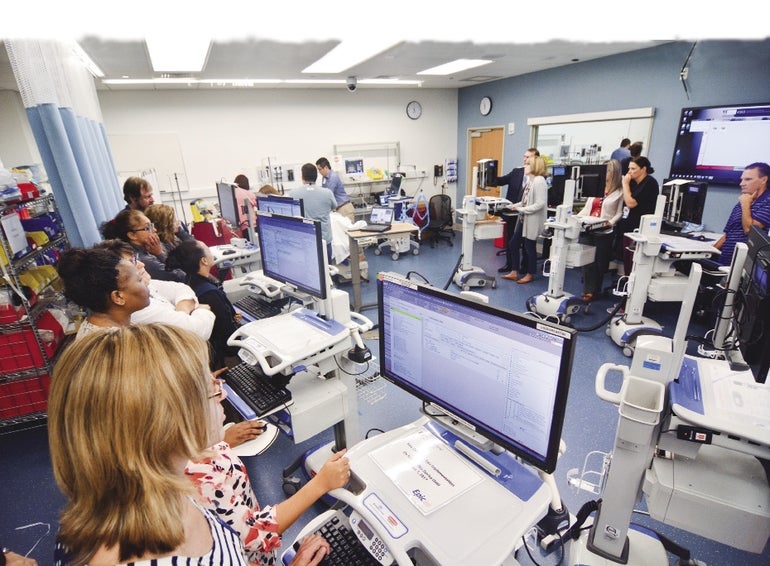As the Massachusetts Health Policy Commission continues to study how the COVID-19 pandemic has affected the state’s health care system, one major area it is exploring is the impacts on the workforce.
A January law directed the commission to report on the state of the health care delivery system during COVID-19. An interim report that the agency released last month found that Hispanic and Black patients represented a disproportionate share of COVID-19 hospitalizations in 2020, and that fewer Massachusetts hospitals were profitable in fiscal 2020 compared to the previous year.
HPC Executive Director David Seltz presented those findings Wednesday to the commission’s advisory council for further discussion, and also asked council members to weigh in on workforce issues.
Among several other topics, the law calling for the study specifies that it should include “an analysis of the impact of COVID-19 on the health care workforce and on health care provider efforts to plan and invest in worker readiness, including, but not limited to, the engagement of the workforce.” The final report is due by Jan. 1, 2022.
“To me it’s pretty clear that almost throughout the whole entire health care system, staffing is a huge issue,” said David Matteodo, executive director of the Massachusetts Association of Behavioral Health Systems. “It’s a huge issue in behavioral health. It was before the pandemic, but it’s even worse now, and people say ‘We need more beds, we need more beds, we need more beds.’ Well, we got almost 400 empty beds now, because of staff, mostly — a lot of it because of staffing and acuity, so I really hope the Health Policy Commission is able to do a deep dive into the future needs.”
Tara Gregorio of the Massachusetts Senior Care Association and Lisa Gurgone of Mass Home Care each brought up issues of low pay and a need for more workers.
“I’ve had a lot of bad days like you all have during this pandemic, but one of the hardest days for me was when our living wage legislation was put into a study during the summer,” Gregorio said. “Our frontline staff have been very clear what they need pre-pandemic and what they need during the pandemic and post-pandemic, which is more staffing. We currently have a vacancy of 5,500 direct care staff that we need to hire, and that’s with a utilization of 75 percent of our beds.”
Gurgone said there is a “huge demand issue” in home care, where she said workers are among the lowest paid in the health care workforce. Many, she said, left the workforce during the pandemic, including some who needed to care for children home from school.
As of February, Gurgone said, there were more than 2,000 older adults waiting to be matched with a home care worker. She said there needs to be “a real strategic approach to addressing this long-term care, direct care workforce crisis.”
Dr. Ronald Dunlap, a cardiologist and past president of the Massachusetts Medical Society, said he was concerned with mental and physical health within health care workplaces.
“That retention going forward and keeping people from retiring or leaving the workforce is going to depend heavily on how well we treat health care workers as we recover from this,” he said. “I think that’s really something that has to be addressed directly, and if we do that well we can retain the people that we have. I think we did bring some people out of retirement but there are a lot more people thinking about retiring because of the stress.”

